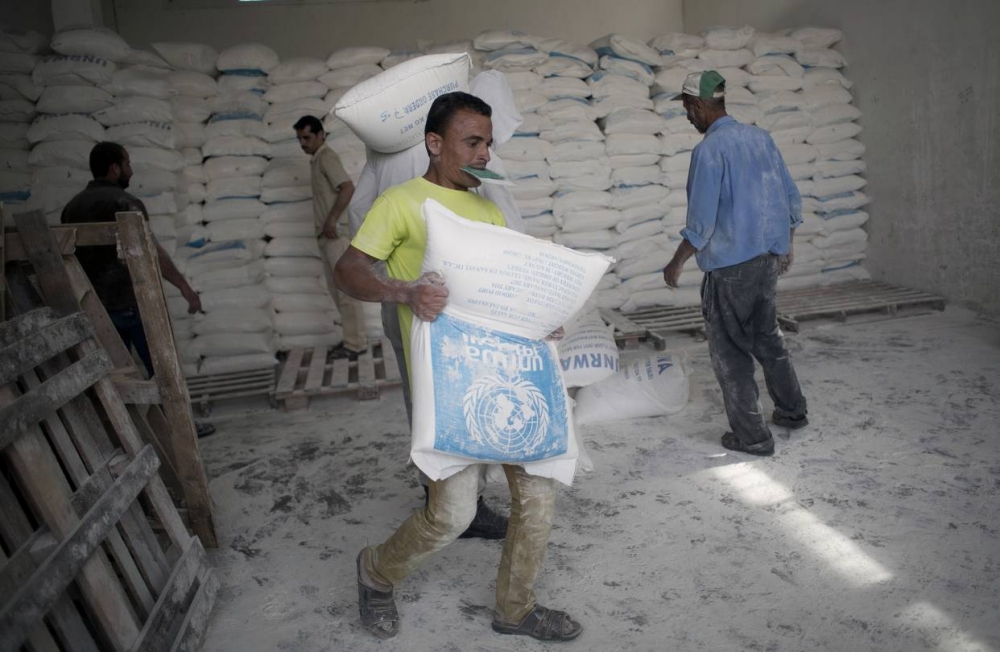Funding cuts threaten key aid supplies for Palestine

Despite significant fundraising activities, UNRWA, the United Nations agency responsible for providing life-saving support to Palestine refugees, is facing its largest reduction in funding, which is threatening the existence of many of its key assistance programmes.
Chris Gunness, UNRWA Spokesperson, commented:
“As we continue to pursue every avenue of support to overcome a severe financial crisis, UNRWA, its dedicated staff, and the refugees have only one option: to face up to this situation together and preserve the most important work we do.”
After the United States decided to reduce funding of UNRWA by $300 million this year, the agency attempted to mobilise political and financial support on a global scale to sustain its operations and continue to provide basic services to its beneficiaries.
The agency’s emergency assistance programme is currently seriously underfunded in the Occupied Palestinian Territory. In West Bank, UNRWA will stop its cash-for-work activities at the end of July and provide assistance only to the most vulnerable groups due to lack of funds.
Mr. Gunness added:
“We are still in crisis. Let no one claim otherwise. But we are also determined to maintain core services to the millions of Palestine refugees who rely on us in Jordan, Lebanon, the occupied Palestinian territory, and Syria, and preserve what we can of our emergency assistance.”
Recognising the increasingly concerning economic situation in the Occupied Palestinian Territory, the World Bank recommended on Wednesday that $90 million should be allocated to support economic recovery and employment opportunities for Palestinians in Gaza and West Bank. This is a significant increase from the usual World Bank allocation of $55 million.
Nickolay Mladenov, Special Coordinator for the Middle East Peace Process, said:
“This significant increase in funding comes at a critical time when urgent interventions are required to prevent renewed conflict and to boost Palestinian economic opportunities and livelihoods. It is particularly vital for Gaza which is on the verge of a total economic and social collapse.”
According to the World Bank, approximately 30% of Palestinians are unemployed. The situation in Gaza is even more severe, with half of the population unemployed and trade and resource constraints resulting in a continued decline in productivity.
Marina Wes, World Bank Country Director for West Bank and Gaza, commented:
“Our assistance intends to provide hope and prospects for Palestinians, especially the youth, and to break the vicious cycle of unemployment, poverty, and instability.”
The newly injected funds will be used in cooperation with the Palestinian Authority and will be transferred in the form of grants from specialised trust funds in the region.
The new grant for the emergency cash-for-work programme will offer training and work experience for young people and women with university degrees, 60% of these people are unemployed, to deliver social services to the most vulnerable. These funds will also support the rehabilitation of infrastructure, including solid waste recycling, water safety, and renewable energy supplies.
Join us for the 10th Anniversary AIDF Global Summit in Washington D.C, USA on 5-6 September 2018 to discuss procurement and financial infrastructure.
If you’d like to stay informed on the latest updates in aid and development, please sign up for the AIDF newsletter.
Image credit: Wall Street Journal













